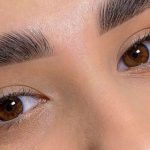Vitamins B are of paramount importance to keep human body healthy. Each one fulfils a specific task and, contrary to others, they cannot be easily overdosed whereas the consequences of their excessive intake are barely noticeable. What’s the effect of vitamins B on skin, hair and nails? What might happen if we suffer from deficiencies?
Energetic vitamin B1
Vitamin B1 is present in lots of foods: pork, liver, yeast, peas, nuts, rolled oats, milk, wheat sprouts, oysters, whole grains, sunflower seeds. Recommended daily intake of vitamin B1 is 1.5-2.0 mg. In the body, vitamin B1 cocreates the coenzyme necessary for energy metabolism and the proper condition of nervous tissue, sugar and lipid metabolism. Its deficit leads to:
- extreme avitaminosis
- swelling of limbs, face and chest
- lack of appetite
- skin hyperpigmentation
- multiple neuritis, myoparalysis, amyotrophy
On the other hand, vitamin B1 excess causes damage to nervous system, headache, insomnia, weakening.
Vitamin B2, or vitamin A’s assistant
You’ll find it in milk and dairy products, spinach, brussel sprouts, yeast, eggs, asparagus. Recommended daily vitamin B2 intake is 1.7-3.0 mg. In our bodies, it plays these roles:
- participates in oxidation process;
- assists in proper functioning of nervous system;
- with vitamin A, it participates in the correct functioning of mucous membrane, respiratory tracts, digestive system mucosa, epithelial tissues;
- takes part in metabolism of amino acids and lipids.
B2 deficit causes:
- pellagra,
- delayed growth,
- damage to eyeballs and corneum,
- photophobia,
- hair loss,
- feeling dizzy, problems with concentration, insomnia,
- flaking skin on the nose, lips, forehead, ears; seborrhoea.
It’s really hard to overdose vitamin B2 through oral intake. It is poorly soluble in intestines, therefore it isn’t absorbed. It is water soluble whereas its excess can be removed with urine. A toxic dose can be only introduced through an injection.
Vitamin B3 for beauty maniacs
It’s in red meat, poultry, fish, mushroom, asparagus, green veggies. Daily intake is 20-25 mg. Vitamin B3:
- assists in synthesis and dissolution of carbohydrates, fatty acids and amino acids;
- takes part in the formation of red blood cells;
- blocks toxic effect of medication;
- regulates level of cholesterol in blood;
- widens blood vessels;
- increases blood flow to skin and improves hair condition.
Deficiency of vitamin B3 causes:
- pellagra,
- skin inflammation,
- diarrhea,
- hyperpigmentation,
- glossitis,
- digestive system disorders.
Excess of vitamin B3, on the other hand, causes damage to nervous system, triggers redness, itching, dry skin, rash, nausea, indigestion, acute liver failure, hyperglycemia, heart rhythm disturbances.
Skin and hair benefits of vitamin B5
This vitamin can be found in red meat, poultry, fish, whole grains, vegetables. Daily intake of vitamin B5 is 3-10 mg. Here’s its role:
- regulates metabolism of proteins, sugars and fats;
- speeds up skin healing;
- enhances cardiovascular, nervous and digestive system;
- assists in tissue repair.
Deficiency of vitamin B5 triggers:
- skin blemishes,
- nervous system disorders,
- tiredness, fainting, learning problems,
- numbness, tingling sensation, limp cramps, painful and stiff joints,
- hair falling out in excess, premature graying and alopecia,
- digestive system disorders, loss of appetite.
Vitamin B5 isn’t toxic yet its excessive intake may cause diarrhea.




Leave a Reply